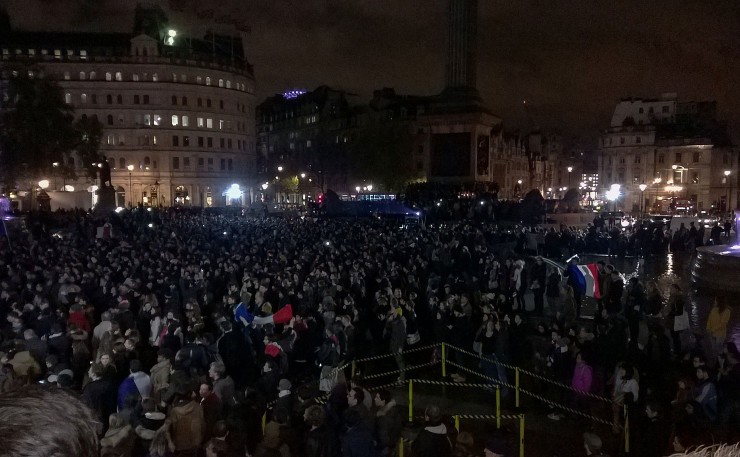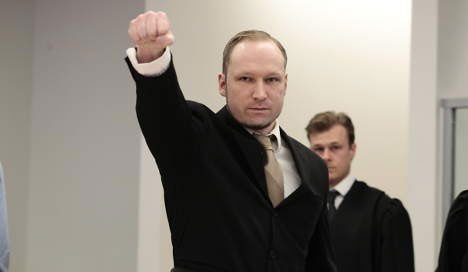The response to the attacks in Paris require military, legal and ideation efforts, writes Anne-Marie Balbi.
In light of the recent horrendous terrorist attacks in Paris the world has stopped in awe to take in and contemplate the terrible atrocities of 13/11. A typical Friday night – wining and dining with your friends at the local restaurant; having an AW drink with your colleagues in a popular bar strip; watching a friendly soccer game live cheering for your team; heading to a much anticipated concert to watch a band play live – that turned into an inferno. All in the midst of the multi-cultural centres of Paris – where the future generations are thriving.
The horrific imagery that has emerged from outside the Bataclan concert hall where people are fleeing for their lives gives a traumatising glimpse of the events that unfolded. Literally like taken from a horror movie. Only it is real. It brings to mind a recent article by The Guardian that discusses why the current younger generation are so attracted to the ‘survival of the best’ movie series the Hunger Games.
“The brutal, bleak series that has captured the hearts of a generation” – referring to Generation K (coined by economist and academic Noreena Hertz) after the hero of the movie Katniss – who can relate to the movie on a personal level as they are navigating a dark and difficult world.
“This is a generation who grew up through 9/11, the Madrid bombings, the London bombings and Islamic State terrors. They see danger piped down their smartphones and beheadings on their Facebook page,” says Hertz. “My data showed very clearly how anxious they are about everything from getting into debt or not getting a job, to wider issues such as climate change and war – 79 per cent of those who took part in my survey worried about getting a job, 72 per cent worried about debt, and you have to remember these are teenagers.”
For these young people are surrounded by violence everyday – for Generation K violence has become the new normal. We only need to rewind back a few weeks leading up to Friday: the metrojet crash in Sinai, suicide attacks in Beirut, attacks in Baghdad, and then Paris – it all speaks for itself. Only last Friday, Generation K ended up in the movie itself. They became the actual victims in the events that unfolded on Friday night.
Reducing the role of the victims serves nobody
Not only did Generation K become victims, they were also reduced by the audience. Much similar to the Charlie Hebdo attacks, where the victim’s voices were silenced due to the debates about religion and secularism, the same thing happened with the recent attacks.
Cheap political points were made by people, who instead of honoring the pain and grief of the victims and their loved ones going through the aftermath of the atrocities, had to get (facebook, twitter etc) ‘likes’ for making a case for why the same kind of attention was not provided for people in the ‘Arabic world’ or for ‘non-white people’.

Although a fair point to be raised, the timing couldn’t be worse (disrespectful to say the least) for the victims (of all attacks) and the debate becomes completely misguided.
Let’s not forget that many of the victims in Paris probably were Muslims themselves, originating from Arabic countries. Nor is the Paris attacks a case of failed French assimilation policy or an issue of ‘social inclusion’, as insightfully discussed in this piece. If reports about the attacks being motivated by retaliation for French involvement in Syria prove correct, most parts of the world will qualify as the target for the next attack.
No matter what ISIS’ motivation for the attacks their end goal is division.
Let us instead respect the three days of mourning in France. Reducing the Paris attacks serves no-one. These kind of debates are worthwhile having, however it detracts from the real issue at hand. Instead we need to use this momentum for clearing through the clouded debates and unite against the real cause behind the attacks. In times like these we need clarity – we need to see things for what they are. Not clouded by the misguided debates on social forums.
“Ideas are all well and good, but wars are won in the material world”
So how do we respond to the attacks? The response will most certainly be clouded by the constant discourse of a ‘battle for hearts and minds’ and the claims of the West losing a ‘war of ideas’, however these claims, as professed over and over, are starting to ring quite hallow.
Any successful counter-terrorism approach must apply both soft and hard measures – or a smart power approach. Regardless of the lessons learnt and legacy of the Bush administration, we cannot defeat ISIS by just targeting their narrative and applying alternative counter-narratives.
J.M. Berger, a prominent ISIS expert, posted an insightful article only two days before the Paris attacks, stating that “[t]he Islamic State isn’t succeeding because of the strength of its narrative. It’s succeeding because it can mobilize a microscopic minority.” In a kind of state of clarity, he highlights how the refrain of a ‘war on ideas’ has echoed throughout most of American history. The ‘war on ideas’ was fought both against the Nazis and the Cold War communism – but was only defeated on the battlefield.
Similarly, Asne Seierstad, the author behind the book based on Anders Behring Breivik and the terrorist attacks in Norway in 2011, has in a response to the Paris attacks likened the Paris perpetrators with Breivik: “[t]he Islamophobes and IS are driven by the same hatred.”
According to her, the common factor for both the Islamic State and the ideologies of Anders Behring Breivik is the pure fascism – they position their people and religion above all others and do not hesitate to kill alleged enemies.
Seierstad also highlights another important aspect and similarity to Breivik. Although the Paris attack witnesses report the shooters claiming the acts were retaliation for French bombings in Syria they did not attack French military facilities or symbols of French power, such as ministries or palaces, nor tourist attractions such as Champs-Elysees nor the quarter neighboorhoods of the elites.

They were also not interested in attacking critics of Islam or right-wing populists. No, just like in the case of Breivik, the key target victims were the young, progressive and tolerant.
“They wanted to target where it would hurt the most – la vie a la francaise – the every day life.” They targeted the area of the 11th arrondissement – the area of the bobos (a term for those both bohemes and bourgeois) and hipster socialists. As Seierstad denotes, the area is known for being progressive: with a female socialist mayor; with a lot of votes for the Greens; where the voices of Le Pen, the nationalists and immigration critics has little ground. Therefore making them the perfect victims.
At the end of the day, terrorists want to create division. “They spread fear so that society will turn backwards, so that it will weaken, polarise, so that it shall topple from its basic foundations and values. The terrorist that knows its victims is the most dangerous.”
Seierstad stresses the French national soccer team and its fans as the ideal target of victims. The French national team is the most successful integration project in France, with most of the players having other ethnic backgrounds.
She concludes how the grey zone is IS’ warzone. That zone, which bridges gaps between people in Europe. That which you find between black and white. Between us and them. Between with or against. For ISIS the end goal is all about making things black and white – for humanity to choose between the camps of Islam or the infidels.
Just like the right-wing extremists hate the ‘colorful’ societies, the IS hates the ‘grey-zone’. The list of common denominators between the extremists is long – the hate against women, the talk about honor, martyrship, the thirst after power.
Resolute action required
It is no wonder that the unwillingness to engage in a military response is a legacy of the Bush administration. However, this fact should not cloud us from seeing things for what they are.
This time around there is no question of Iraq breeding terrorism and the Syrian conflict only plays into the hands of ISIS – which means that the international community, including regional parties, must put its differences aside to work for an endurable solution.
Because at the end of the day – no counter-narratives or ‘war of ideas’ are going to make ISIS go away. No containment – which has been the policy to date – has averted them from successfully carrying out attacks and stopped the spread of the organisation’s growth in the Middle East.
In fact, top European leaders are now saying that what happened in Paris could just as well have been Britain, Denmark or Sweden. Europe and other Western nations are now just preparing for the next attacks to take place.
While France and the US has initiated a coherent military response in light of the Paris attacks these efforts must be backed up by a unified international community – as what ISIS most fears is unity.
The battle against ISIS will only be won by a coherent effort targeting it on three levels: military, legal and ideational.
As a Swedish News Editor recently put it: “The civilised world must together unify against the barbarism while simultaneously defend the ideas of the enlightenment”.
We simply cannot let Generation K – the young, progressive and tolerant, whether in Baghdad, Beirut, Oslo or Paris – live their lives in midst of the Hunger Games.
Donate To New Matilda
New Matilda is a small, independent media outlet. We survive through reader contributions, and never losing a lawsuit. If you got something from this article, giving something back helps us to continue speaking truth to power. Every little bit counts.





